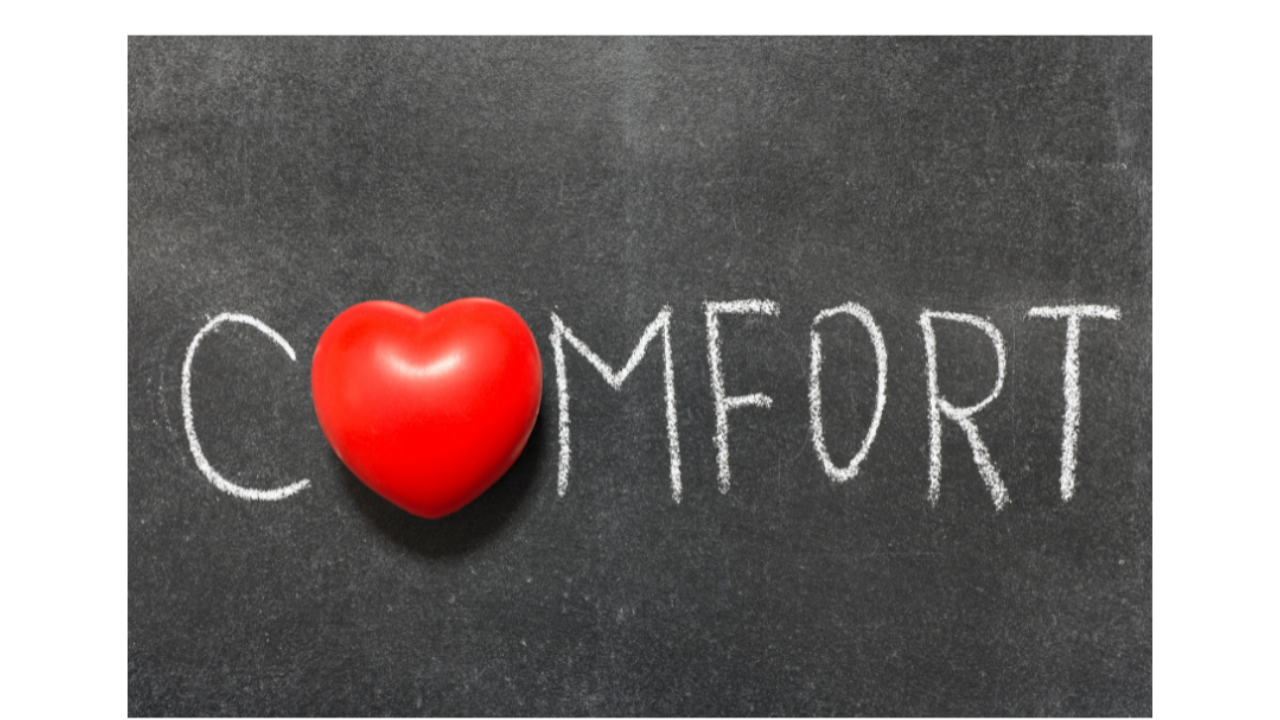The Comfort Illusion: Why Alcohol Feels Helpful—Until It Doesn’t
Nov 23, 2025
The Comfort Illusion: Why Alcohol Feels Helpful—Until It Doesn’t
There was a time when alcohol felt comforting, and I imagine you’ll know what I mean. It was like a long exhale at the end of the day. I’d always drunk socially, from about the age of 15, but I never drank alone. It was one of my rules—until it wasn’t.
As I got older and life got more complicated, I would have no problem buying a bottle of wine after school pick-up and opening it long before dinner time. I always imagined I’d just have one, but the bottle slowly emptied—and so did my mind.
The comfort alcohol gave me was real. Sometimes I miss the certainty of it—the surety that my worries could just slip away. But when I was drinking, it was the immediate relief that was so seductive, driven by nothing more sinister than habit. I didn’t need it physiologically; it was simply short-term relief in a bottle.
This email is all about the comfort illusion.
If alcohol has ever felt like your “comfort,” you’re not imagining it. In the moment, it does take the edge off. It downshifts the nervous system quickly and predictably. That short-term soothe is real.
But there’s a catch: the same thing that calms you in the moment creates the very discomfort you’re trying to avoid—fragmented sleep, next-day anxiety, low mood, reduced self-trust, and a constant mental negotiation that drains your bandwidth. In corporate health terms, it’s a classic short-term relief, long-term risk trade-off.
Why People Get Stuck in This Loop
Under emotionally heightened states (conflict, overload, travel, the holidays), your brain’s decision-making centre—the prefrontal cortex—goes partially offline. Your system prioritises survival (avoid pain) and defaults to the fastest path to relief. If alcohol has been that path for years, your brain will point there first. It’s not weakness—it’s the power of repetition and habit formation.
The good news? You can change a habit in the same way it was created: through repetition of a new, rewarding action. With practice and intention, you can install new pathways that lead to the same outcomes you once outsourced to a glass: relaxation, relief, and reward—without the rebound costs.
Social Pressure Is a Real Risk Factor
We don’t make it easy not to drink.
It’s comfortable to be a non-smoker or to say no to illicit drugs. In fact, we can have a sense of pride about not engaging in habits that are frowned upon and socially unacceptable.
But unlike smoking (which culture now openly discourages), drinking is still normalised and glamorised. Business travel, celebratory dinners, and industry events encourage heavy pours as “connection.” That environmental baseline makes it harder to opt out—and easier to rationalise “just one.”
Drinking Alone
This is a different form of comfort. You don’t have to drink to be accepted, and there’s no one offering an extra glass. This drinking is, at best, entertainment from boredom—and at worst, total numbing and escapism.
The comfort I got from my drinking alone I now see was pure escapism. I was unhappy, and I didn’t like myself. Left alone with my thoughts, I’d spiral into self-criticism or self-pity—though mostly, I blamed myself harshly.
Looking back, it was no wonder I drank.
A purely social drinker who never or rarely drinks alone may find it easier to quit or cut back (this excludes those who drink before social events to manage social anxiety). Not drinking is becoming more acceptable and aspirational, with more non-alcoholic options available than ever before.
For the pre-event drinker (I was one of these too), the challenge is similar to the home comfort drinker. We are seeking to soothe. We are afraid to be ourselves—and afraid to be with ourselves.
This is the task: to learn to be comfortable without alcohol—in our own company. And once we learn to like who we are without it, the need to boost our confidence socially melts away.
Choosing not to drink becomes the pathway to long-term comfort.
You Are Safe
When we first begin this journey and remove the comfort of alcohol, our discomfort can feel almost intolerable. All the things we’ve been trying to avoid come up to be felt. But this is healing—not harm.
A Nervous-System Tool That Works in Minutes
When stress is high and cravings kick in, try the physiological sigh:
- Inhale quickly through the nose.
- Top it up with a second small nasal inhale.
- Long, slow exhale through the mouth.
- Repeat 5–8 times.
This pattern drops physiological arousal and allows access to logic and reason so the part of you that cares about tomorrow can make the call today.
From “Comfort Now” to “Congruence Long-Term”
A useful question isn’t “Is alcohol bad?” but rather: “What’s the time horizon of the value I’m chasing?”
- Short-term value: quick comfort, less social awkwardness, momentary reward.
- Long-term value: psychological safety in your own body, congruence with your values, reliable sleep, better leadership presence, and restored self-trust.
You thrive when your actions align with your values. Each time you choose congruence over quick comfort, you deepen that alignment. That’s how confidence compounds.
Expect These Stages—and Plan for Them
Most people cycle through:
- Conscious Incompetence: “I get the why and the how—but I find it really hard.”
- Conscious Competence: “I can do it—and I have to stay focused and intentional.”
We want to stay at stage 2. Stage 3 is ‘Unconscious Competence’ – which means not paying attention and often forgetting the reasons we decided to stop, and the costs. This is how complacency creeps in.
Think of this as performance hygiene: simple, repeatable practices that keep you aligned.
The Invitation
If you’ve had years of “comfort” with a side of regret, you’ve already learned everything alcohol can teach you.
The next lesson is on the other side of the pause: Who are you when you regulate, reward, and restore yourself naturally —no shortcuts?
Start small. Breathe. Choose congruence. Repeat.
The comfort you were seeking becomes something far more stable: self-trust.
5 Natural Ways to Seek Comfort in Social Settings
- Regulate Before You Relate
Arrive grounded. Take a few slow breaths before walking in, or spend two minutes doing the physiological sigh in your car. A calm body cues a calm brain — and confidence naturally follows. - Hold Something in Your Hand
Choose a drink that feels grown-up and familiar — like a sparkling water with lime or a non-alc cocktail. The ritual of holding something signals safety to the brain and keeps your hands occupied. - Micro-Connect
Instead of chasing “fitting in,” look for one authentic point of connection — a smile, a shared laugh, a genuine compliment. Depth over breadth builds oxytocin (the bonding hormone) and reduces social anxiety. - Move Your Body
Movement dissipates tension. Dance, help serve, take a quick lap outside, or switch seats. Physical movement shifts stuck energy and resets your internal state faster than another round ever could. - Anchor a Conversation in Curiosity
Ask meaningful, open-ended questions (“What’s been your highlight this week?”) rather than defaulting to small talk. Genuine interest triggers dopamine and belonging — the same circuits alcohol mimics.
🕯️ 5 Natural Ways to Seek Comfort When Alone
- Create a Sensory Sanctuary
Engage your senses: warm shower, soft lighting, calming scent, cozy blanket. The nervous system reads tactile and olfactory cues as safety signals — a true antidote to craving. - Warm the Body, Calm the Mind
Swap the glass of wine for warmth — herbal tea, a heated wheat bag, or even a bath. Heat activates the parasympathetic nervous system and releases the same “relax” chemistry alcohol once did. - Write, Don’t Ruminate
When thoughts spiral, get them out of your head and onto paper. Journaling converts emotional chaos into narrative — which engages the prefrontal cortex and restores clarity. - Soothing Soundtrack
Use music to regulate state: slow rhythm for calming, upbeat for mood-boosting. Sound entrains your heartbeat and breathing patterns, helping the body feel “held.” - Self-Touch and Breath
Place a hand over your heart or belly and breathe slowly until the exhale lengthens naturally. It releases oxytocin and signals to your body: I’m safe.
Long-term regular drinking can become very uncomfortable, take small action this week, and practice one way of comforting yourself kindly,
With love
Sarah



